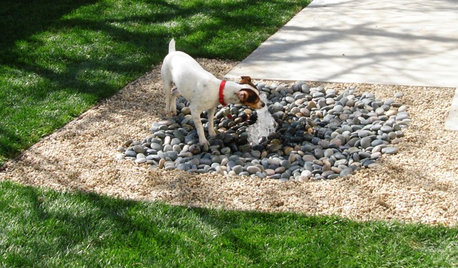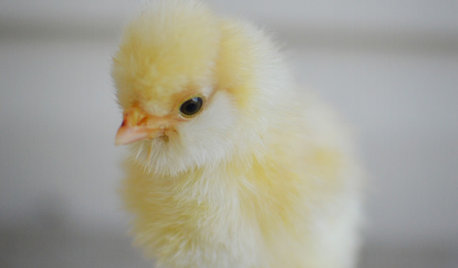Roses, companions dangerous to pets, ASPCA
sammy zone 7 Tulsa
15 years ago
Related Stories

EDIBLE GARDENSGarden BFFs? Why Your Vegetables Are Begging for Companion Plants
Foster friendships among plants for protection from pests, pollination support and color camaraderie
Full Story
HOME TECHFacebook Meets Fido: Pet Connections for the Digital Age
Three new products let you communicate with your dog or cat while you're at work
Full Story
FUN HOUZZHouzz Pets: 50 Cats Cozy Up at Home
Design-Loving Felines Have the Run of the House
Full Story
PETS6 Ways to Help Your Dog and Landscape Play Nicely Together
Keep your prized plantings intact and your dog happy too, with this wisdom from an expert gardener and dog guardian
Full Story
MOST POPULAR8 Backyard Ideas to Delight Your Dog
Cue the joyous soundtrack. These pet-friendly landscape and garden ideas will keep your pooch safe, happy and well exercised outdoors
Full Story
PETSHouzz Call: Send in the Design Cats
Post your best photo of your cat at home, in the garden or with you in your studio. It could be published in a featured ideabook
Full Story
PETSIncredible Home Catwalks Make for Purr-fectly Happy Felines
Walkways and tunnels custom built to the tune of about $35,000 keep a homeowner’s 18 cats on cloud nine
Full Story
PETSWhat You Need to Know Before Buying Chicks
Ordering chicks for your backyard coop? Easy. But caring for them requires planning and foresight. Here's what to do
Full Story
DECORATING GUIDESThe Dumbest Decorating Decisions I’ve Ever Made
Caution: Do not try these at home
Full Story
CONTAINER GARDENSHappy Houseplants, Happy People
Potted plants add life and beauty to a room. Learn easy ways to keep them healthy
Full Story





gnabonnand
jerijen
Related Discussions
Toxic companions to dogs
Q
My Desert Rose...Near Death Accident
Q
Just a reminder what not to feed you furry family!
Q
"Must Have Roses" ??
Q
sammy zone 7 TulsaOriginal Author
catsrose
sammy zone 7 TulsaOriginal Author
huttnem
sammy zone 7 TulsaOriginal Author
stefanb8
lemecdutex
greenhaven
sammy zone 7 TulsaOriginal Author
jerijen
sammy zone 7 TulsaOriginal Author
greenhaven
jerijen
jerijen
lionheart_gw (USDA Zone 5A, Eastern NY)
sammy zone 7 TulsaOriginal Author
catsrose
lionheart_gw (USDA Zone 5A, Eastern NY)
jbfoodie
jerijen
sammy zone 7 TulsaOriginal Author
sammy zone 7 TulsaOriginal Author
sammy zone 7 TulsaOriginal Author
jerijen
sammy zone 7 TulsaOriginal Author
barbarag_happy
sammy zone 7 TulsaOriginal Author
iowa_jade
sammy zone 7 TulsaOriginal Author
kittymoonbeam
sammy zone 7 TulsaOriginal Author
sandy808
sammy zone 7 TulsaOriginal Author
jerijen
huttnem
oldroser
huttnem
sammy zone 7 TulsaOriginal Author
riverspots
lou_spicewood_tx
huttnem
berndoodle
huttnem
patricianat
huttnem
sammy zone 7 TulsaOriginal Author
teeandcee
patricianat